Will a Car Alternator Charge a Deep Cycle Battery – Find Out!
Charging a deep cycle battery with a car alternator can work, but it’s not ideal. I’ve used an alternator for this before, and while it did provide some charge, the battery often wasn’t fully charged.
Switching to a dedicated deep cycle charger made a noticeable difference in performance and battery life.
Introduction:
Charging a deep cycle battery with a car alternator is a topic that sparks curiosity, particularly for those using deep cycle batteries in off-grid setups, RVs, or marine applications.
Deep cycle batteries are designed to provide steady power over prolonged periods, making them essential for numerous devices and systems. However, when it comes to charging, many wonder if their vehicle’s alternator is up to the task.
Understanding how a car alternator functions and whether it can effectively charge a deep cycle battery requires a deep dive into the technicalities of both systems.
Understanding the Basics of Car Alternators and Deep Cycle Batteries:
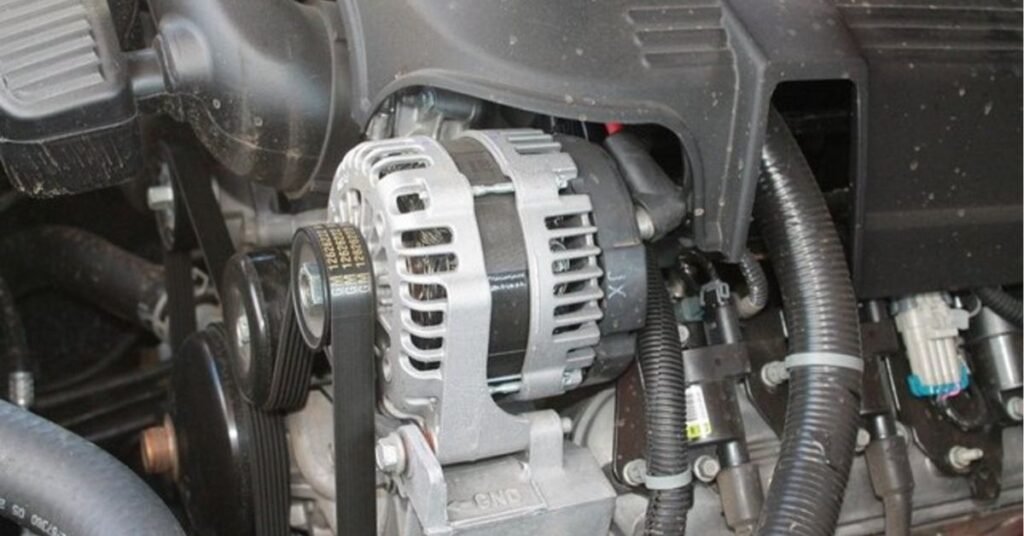
What is a car alternator and how does it work?
A car alternator is a pivotal component in modern vehicles, designed to convert mechanical energy from the engine into electrical energy. This electrical energy charges the vehicle’s battery and powers all of the car’s electronic systems, from the headlights to the infotainment system. Alternators work by using a belt-driven rotor that spins inside a stator coil, generating alternating current (AC), which is then converted to direct current (DC) to charge the battery. While alternators are incredibly efficient in maintaining a car’s standard battery, they are tailored for regular driving conditions and average power demands.
Overview of deep cycle batteries: Purpose and applications
Deep cycle batteries, unlike regular car batteries, are built to provide a steady and consistent supply of power over an extended period.
Their primary application is in scenarios where prolonged energy use is required, such as in marine systems, recreational vehicles (RVs), and off-grid solar power setups.
These batteries are engineered to be deeply discharged repeatedly without being damaged, which sets them apart from the shallow charge-discharge cycles of standard car batteries.
Their robust design makes them suitable for running heavy-duty equipment and providing power during long periods of inactivity.
Key differences between a regular car battery and a deep cycle battery:
At first glance, a car battery and a deep cycle battery might look alike, but their functionalities are vastly different. Car batteries, or starting batteries, are designed for short bursts of high energy output.
Their role is primarily to start the engine and then allow the alternator to take over the electrical supply. Deep cycle batteries, on the other hand, are designed for sustained use, providing low amounts of current over extended periods without causing damage.
The construction of deep cycle batteries includes thicker plates, which allows them to endure more charge-discharge cycles, while car batteries are optimized for starting power but degrade faster under constant discharge.
read also: Does Leaving Car Window Open Drain Battery – Find Out Now!
Can a Car Alternator Efficiently Charge a Deep Cycle Battery?
How car alternators charge batteries: Voltage and current delivery
Car alternators are designed to deliver a specific amount of voltage—typically between 13.8 and 14.8 volts—to maintain a standard car battery. The alternator adjusts its current delivery based on the battery’s charge state, ensuring it doesn’t overcharge or undercharge the battery.
However, when it comes to deep cycle batteries, the alternator’s charging profile may not align with the battery’s needs.
While an alternator can charge a deep cycle battery, it might not provide the consistent and precise voltage needed for the long-term health of the deep cycle battery.
Compatibility of standard alternators with deep cycle batteries:
Though standard car alternators can charge deep cycle batteries, they aren’t optimized for the job. Deep cycle batteries often require a slower, more controlled charge, whereas alternators are designed to quickly replenish regular car batteries.
Using an alternator to charge a deep cycle battery may work in the short term, but it might not deliver the deep and sustained charge that deep cycle batteries require. This can lead to incomplete charging and decreased battery lifespan over time.
Common misconceptions about using alternators for deep cycle batteries:
One of the most prevalent misconceptions is that a car alternator can charge a deep cycle battery as effectively as a dedicated charger.
While alternators can provide charge, they aren’t designed for deep cycle charging needs. Many users mistakenly believe that driving for long periods will fully recharge a deep cycle battery, but this isn’t always the case.
Alternators tend to focus on maintaining battery charge rather than fully recharging a deeply depleted battery, often leaving the deep cycle battery undercharged.
Factors That Affect Charging Efficiency with a Car Alternator:
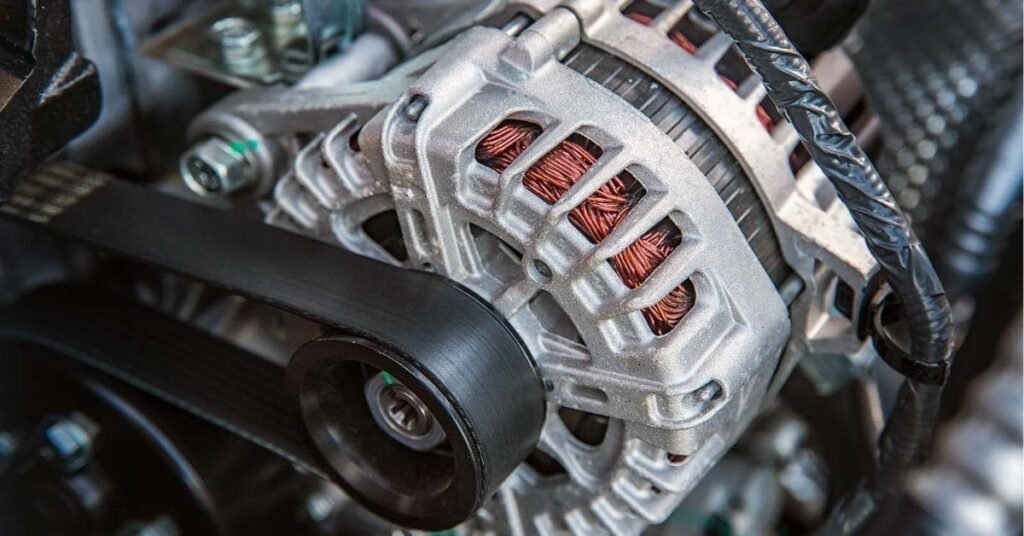
The role of alternator output: Can it meet the demands of deep cycle batteries?
The charging capacity of an alternator is based on its output, which can vary significantly between different vehicles.
The average car alternator produces around 100 amps, but this isn’t always sufficient to meet the charging requirements of a deep cycle battery, especially if the vehicle’s electrical system is drawing a significant load.
Additionally, the charging voltage provided by alternators may not match the ideal charging voltage needed for deep cycle batteries, leading to inefficiencies.
Depth of discharge in deep cycle batteries and its impact on charging:
The depth of discharge (DoD) refers to how much of the battery’s capacity has been used before recharging. Deep cycle batteries are designed to handle a higher DoD compared to standard batteries.
However, if a deep cycle battery is significantly depleted, it requires a specific charging regimen to be fully restored. Alternators, while effective in shallow charge cycles, may struggle to provide the necessary depth of charge to fully replenish a deeply discharged battery, leading to suboptimal performance.
Voltage regulation: Why deep cycle batteries need consistent charging
One of the challenges with using an alternator to charge a deep cycle battery is the need for consistent voltage regulation. Deep cycle batteries thrive on controlled voltage inputs over a longer duration.
However, alternators tend to fluctuate in voltage output depending on the engine’s RPM and the vehicle’s electrical load. This inconsistency can lead to overcharging or undercharging, both of which can reduce the lifespan and effectiveness of the deep cycle battery.
read also: Replaced Alternator and Battery But Car Still Dies – Troubleshooting Guide!
Potential Risks of Charging a Deep Cycle Battery with an Alternator:
Overcharging risks: How alternators may cause damage to deep cycle batteries
While alternators are designed to regulate charging for regular batteries, they may cause overcharging in deep cycle batteries.
Prolonged exposure to high voltage from an alternator can lead to excessive gassing, overheating, and damage to the battery plates. This can significantly reduce the battery’s capacity and shorten its lifespan.
Undercharging concerns: Why alternators may not fully charge deep cycle batteries
Undercharging is another potential risk when using an alternator to charge a deep cycle battery. Alternators are typically programmed to maintain a standard battery charge, which may not fully replenish a deep cycle battery.
Over time, repeated undercharging can cause sulfation, a condition where lead sulfate crystals form on the battery plates, decreasing the battery’s capacity and performance.
Heat buildup and its impact on battery life when using an alternator:
Using an alternator to charge a deep cycle battery can also generate excessive heat, both in the battery and the alternator itself. High temperatures can damage the battery’s internal components, reducing its efficiency and lifespan.
Additionally, alternators that are overworked by trying to charge a deep cycle battery can overheat, leading to potential damage or failure.
Enhancing the Charging Process: Solutions for Better Alternator Charging
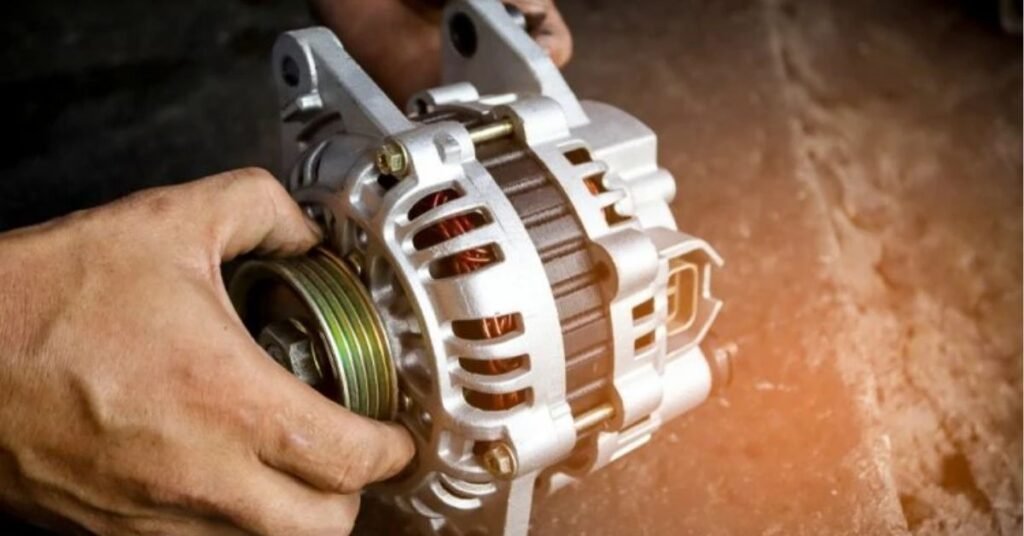
Using a smart charger or regulator to improve charging efficiency:
A smart charger or voltage regulator can help bridge the gap between an alternator’s output and the charging needs of a deep cycle battery.
These devices monitor the battery’s state and adjust the charging current and voltage to optimize charging efficiency, ensuring the deep cycle battery receives the appropriate charge without being overworked or undercharged.
Benefits of battery isolators and voltage sensing systems:
Battery isolators and voltage sensing systems can be used to protect both the alternator and the deep cycle battery. These systems prevent the alternator from being overloaded and allow for a more efficient distribution of electrical power.
By isolating the deep cycle battery from the alternator when necessary, these systems ensure that each battery gets the correct charge without draining the other.
When to consider upgrading your alternator for deep cycle battery charging:
For users who rely heavily on deep cycle batteries, especially in applications such as RVs or marine vessels, upgrading the alternator may be necessary. High-output alternators are designed to provide the sustained current needed to charge deep cycle batteries more effectively.
While this may require a larger initial investment, the long-term benefits of having a properly charged deep cycle battery can outweigh the costs.
read also: Can I Jump an RV Battery with My Car – Key Facts You Need!
Alternatives to Charging Deep Cycle Batteries with an Alternator:
Dedicated deep cycle battery chargers: Why they are a safer option
A dedicated deep cycle battery charger is specifically designed to provide the slow, controlled charge that these batteries require. These chargers offer different charging stages, including bulk, absorption, and float, ensuring the battery is charged fully and safely.
For those looking for the best way to maintain the health of a deep cycle battery, a dedicated charger is the ideal solution.
Solar charging systems as a sustainable alternative:
Solar charging systems are an increasingly popular option for charging deep cycle batteries, especially in off-grid applications.
Solar chargers provide a steady, low-current charge, making them ideal for maintaining deep cycle batteries over long periods. Moreover, they offer the added benefit of being eco-friendly and reducing reliance on vehicle alternators.
Shore power and inverter options for off-grid deep cycle battery setups:
For those who rely on deep cycle batteries in RVs or marine applications, shore power and inverter systems offer a reliable alternative to alternator charging.
These systems allow users to plug into external power sources and use inverters to convert AC power to DC, providing a consistent and efficient charge to deep cycle batteries without the risks associated with alternator charging.
FAQ’s
1. Can a car alternator charge a deep cycle battery?
Yes, a car alternator can charge a deep cycle battery, but it’s not ideal. Alternators are designed for regular car batteries and may not provide the consistent voltage and current required for deep cycle batteries.
2. What is the main difference between a car battery and a deep cycle battery?
Car batteries provide short bursts of high energy for starting engines, while deep cycle batteries deliver steady power over long periods and can handle repeated deep discharges without damage.
3. Why might an alternator undercharge a deep cycle battery?
Alternators are optimized for maintaining standard car batteries and may not provide the deep, controlled charge needed for deep cycle batteries, leading to incomplete charging.
4. What are the risks of using an alternator to charge a deep cycle battery?
Risks include overcharging, undercharging, and excessive heat buildup. These issues can damage the battery, reduce its lifespan, and affect performance.
5. What are alternatives to using an alternator for deep cycle batteries?
Alternatives include dedicated deep cycle battery chargers, solar charging systems, and shore power with inverters. These options offer controlled and efficient charging suited to deep cycle batteries.
Conclusion:
Using a car alternator to charge a deep cycle battery is feasible but not ideal. Alternators are designed for standard car batteries and may not provide the proper charging profile for deep cycle batteries, risking incomplete charging and reduced lifespan. For best results, use dedicated deep cycle chargers, solar systems, or shore power alternatives.
Read Also:
Can a Bad Battery Cause Surging – The Hidden Danger!
Does Leaving Car Lights on Auto Drain Battery – The Truth Revealed!
What Gauge Wire to Connect 12V Batteries in Parallel – Complete Guide!
When a Car Battery Tests Good but Still Fails – A Common Reason!
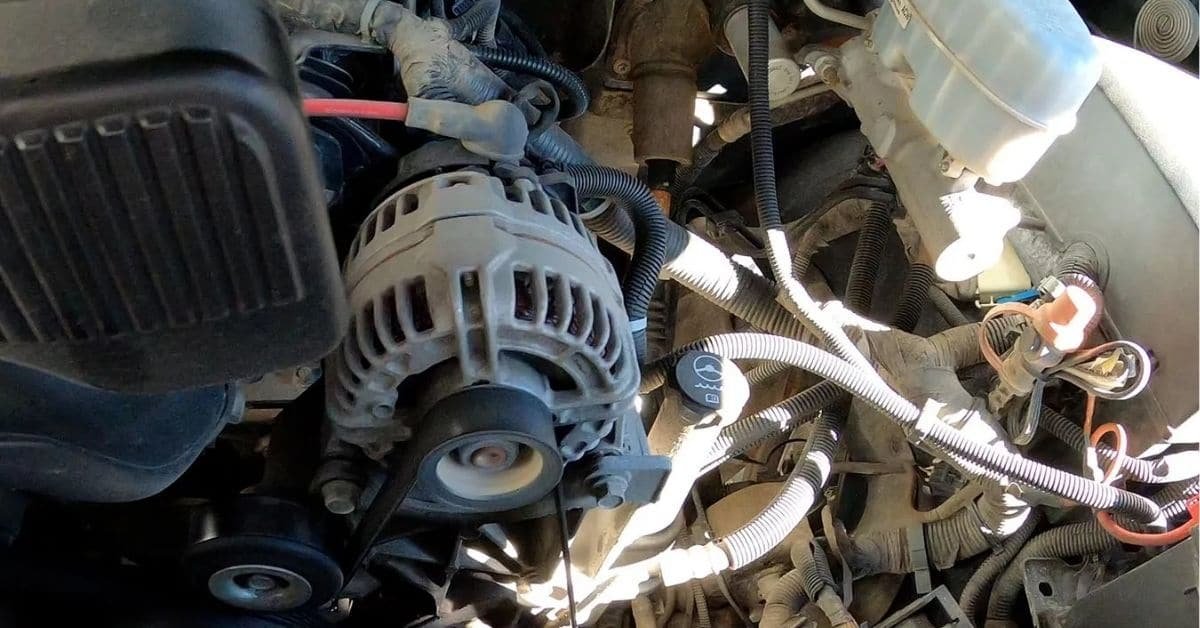

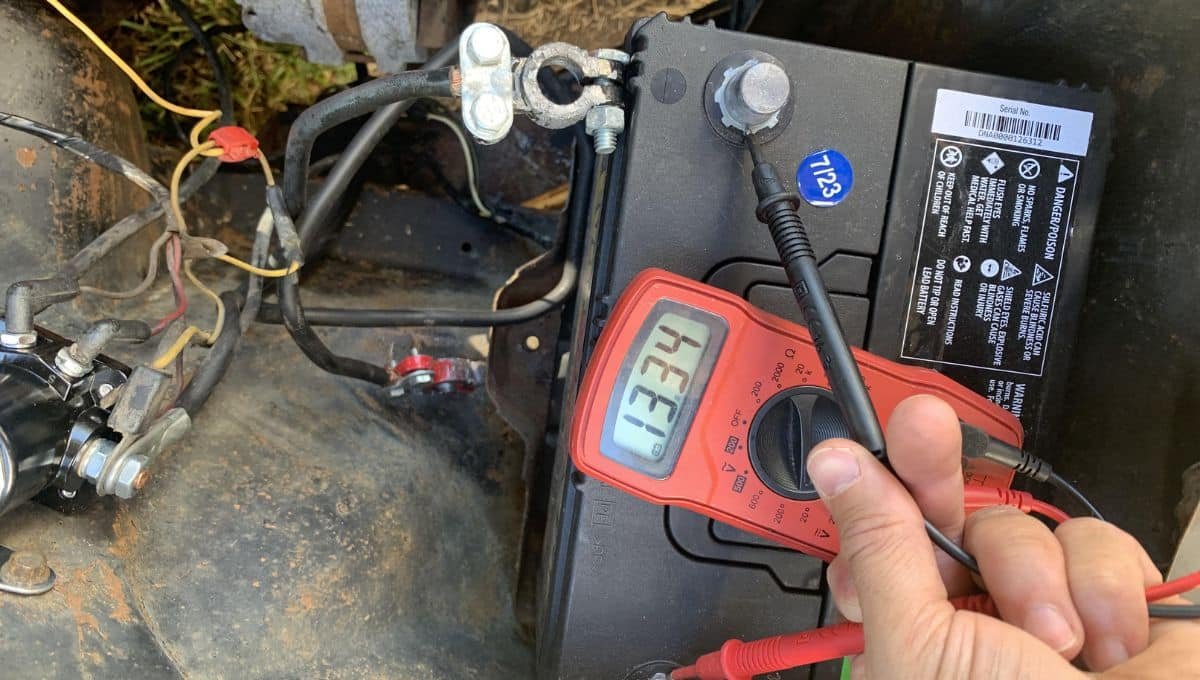


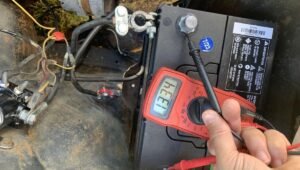




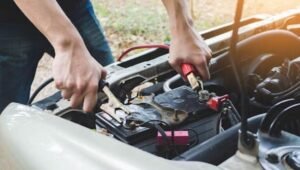
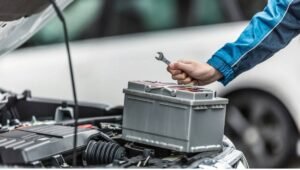

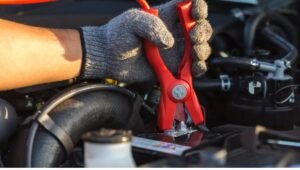
Post Comment